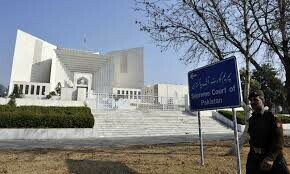PESHAWAR, Sept 13: The World Health Organization has urged Pakistan, Afghanistan and India to form a joint working group with Iran and share information on polio eradication.
"Polio eradication drives are continuing in these countries for several years but Iran is the only country where the government is successful in eradicating the disease," a health official said.
He said that polio cases had regularly been reported in Pakistan, India and Afghanistan polio, adding that Iran's inclusion in the group was being seen by some as an acknowledgement of its success and an eagerness to share its success.
He said that both the WHO and Pakistani health experts were unanimous about complete eradication of polio from the region, which they see as a major challenge despite carrying out several massive anti-polio campaigns.
In Pakistan, 24 polio cases, including seven in the NWFP, had been reported during 2004 while India reported 25 cases and Afghanistan three. WHO officials were sure that the polio incidence was much higher in Afghanistan than was being reported because of the frequent movement of its population, adding that it made tracing out of actual number of polio cases difficult.
Sources said that the WHO had asked the NWFP to draft a PC-1 for the establishment of the joint working group, adding that the proposal would be forwarded to the WHO headquarters for final approval.
Officials said that if the proposal was approved, then a proper network would be established to hold regular cross-border meetings besides exchanging data on latest occurrence of polio cases.
The Pakistani government had recently approved international donor agencies' strategy according to which no National Immunisation Days would be observed after December 2004 and polio vaccination drives would be carried out only in areas where fresh cases had been reported.
For quite some time now, WHO officials had been insisting upon Pakistan to ensure a zero-level of polio cases by the end of 2004. Some donor agencies had planned to switch over to eradicating other disease in the country.
Pakistani officials said that the situation was at a controllable level and in the current year, only a few polio cases had been reported. They predicted that if September passed without the occurrence of new cases, then the disease could be said to be under control to some extent.
MEDICINES' PRICES: Institute of Radiotherapy and Nuclear Medicine Director Dr Mohammad Ayub Khan on Sunday urged the pharmaceutical companies to reduce the prices of medicines.
He said at a seminar: "Most of the quality drugs are very expensive and out of the reach of the common people." He said it was the responsibility of the drug manufacturers to help the government in provision of medicines to patients at affordable rates.















































Dear visitor, the comments section is undergoing an overhaul and will return soon.